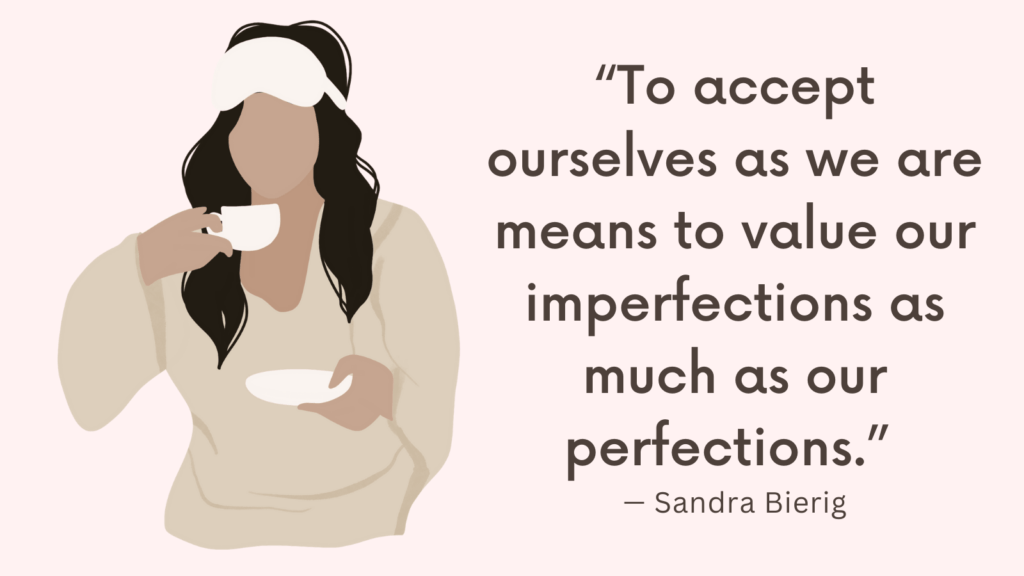In this post, you’ll learn the difference between self-esteem and self-confidence.
What Is Self Esteem?
Self-esteem is the subjective evaluation or perception an individual has about their own worth, capabilities, and value as a person.
It involves how we perceive and feel about ourselves, our abilities, accomplishments, and how we believe others perceive us.
Self-esteem plays a crucial role in shaping our thoughts, emotions, and behaviors.
It can significantly impact our mental health, relationships, and overall well-being.
There are generally three main types of self-esteem: high self-esteem, low self-esteem, and healthy self-esteem.
1. High Self-Esteem
Individuals with high self-esteem have a positive and confident view of themselves. They generally have a strong belief in their abilities, worth, and value.
People with high self-esteem tend to be more resilient, assertive, and better equipped to handle challenges and setbacks. They are often more satisfied with themselves and their lives.
2. Low Self-Esteem
Individuals with low self-esteem tend to have a negative and critical view of themselves. They may struggle to believe in their abilities, question their worth, and have a lack of confidence.
People with low self-esteem often experience self-doubt, fear of failure, and may engage in self-sabotaging behaviors. It can negatively impact various aspects of their lives, such as relationships, work, and overall well-being.
3. Healthy Self-Esteem
Healthy self-esteem lies between the extremes of high and low self-esteem. It involves having a realistic and balanced view of oneself, acknowledging both strengths and weaknesses.
Individuals with healthy self-esteem possess a certain level of self-acceptance, respect, and appreciation. They recognize their own worth while also being open to personal growth and improvement.
It’s important to note that self-esteem can fluctuate over time and may vary in different areas of life.
Related: Top 18 Self Esteem Exercises (+FREE CBT For Self-Esteem Worksheets PDF)
What Is Self Confidence?
Self-confidence refers to a belief in one’s own abilities, skills, and qualities.
It involves having trust and faith in yourself to successfully accomplish tasks, face challenges, and handle various situations.
Self-confidence is an important aspect of psychological well-being, as it can positively influence our thoughts, emotions, behaviors, and overall life satisfaction.
Related: How Confident Am I Quiz (+Best 13 Practical Tools To Feel More Confident)
Self Esteem vs Self Confidence
Self-esteem and self-confidence are related concepts but have distinct differences.
Self-esteem is deeply rooted in our beliefs about ourselves and impacts how we perceive ourselves in relation to others and the world around us.
It is often developed early in life through experiences, relationships, and feedback from others.
Self-confidence, on the other hand, specifically relates to one’s belief in their abilities to accomplish tasks, achieve goals, and handle different situations.
It is more situation-specific and can fluctuate depending on the domain or context.
Self-confidence is influenced by past achievements, skills, knowledge, and the level of preparation in a particular area.
While self-esteem is more about our overall sense of self-worth, self-confidence is about having trust and belief in our abilities in specific domains.
However, they do interact with each other and can influence one another.
For example, low self-esteem may lead to lower self-confidence, as individuals may doubt their abilities due to negative self-perceptions.
Conversely, high self-confidence in a particular area can positively impact self-esteem by reinforcing positive self-beliefs.
It is important to note that both self-esteem and self-confidence are malleable and can be developed and improved over time with self-reflection, personal growth, and the adoption of helpful strategies and perspectives.
Related: Best 10 Self Esteem Books

How to Increase Your Self-Esteem and Self-Confidence?
1. Recognize your strengths
Recognizing your strengths is a crucial step towards building a healthy sense of self-worth.
Start by making a list of your accomplishments, talents, and positive qualities. Reflecting on moments when you have succeeded, both big and small, can help boost your confidence.
For instance, if you received praise for a presentation at work or aced a difficult exam, acknowledge these achievements.
Additionally, remind yourself of the unique qualities that make you who you are. Are you a good listener, a compassionate friend, or a talented artist?
Embracing these aspects of your personality will reinforce your self-esteem and help you project confidence in different areas of your life.
Related: Best 10 Confidence Books
2. Set realistic goals
Setting goals provides a clear direction and focus, giving you a sense of purpose and accomplishment.
However, it is crucial to set goals that are achievable and aligned with your capabilities and values. Unrealistic expectations can lead to disappointment and self-doubt, which can hinder your self-esteem and confidence.
For example, if you want to improve your public speaking skills, start by setting small, attainable goals such as giving a presentation in front of a supportive group or enrolling in a public speaking course.
As you achieve these smaller milestones, you will gain confidence and motivation to pursue more challenging goals.
Remember, progress may be slow at times, but each step forward contributes to your overall growth and self-belief.
Related: Best 18 Journal Prompts For Confidence
3. Face your fears
When you confront the things that make you anxious or fearful, you prove to yourself that you are capable of overcoming challenges.
It might be terrifying at first, but gradually exposing yourself to what scares you can lead to tremendous personal growth.
For example, if public speaking makes you nervous, start by speaking in front of a small group of supportive friends or family members.
As you become more comfortable, gradually increase the size of your audience. With each success, your confidence will soar, and you’ll develop a stronger belief in your abilities.
Remember to celebrate every small victory along the way and be patient with yourself. Facing your fears is not about being fearless, but about acknowledging your fears and taking steps to overcome them.
Related: How to Overcome Fear In Life? 5 Actionable Steps To Conquer Fear And Get Unstuck
4. Practice self-compassion
Self-compassion involves treating yourself with kindness, understanding, and patience, just as you would treat a good friend who is going through a tough time.
By cultivating self-compassion, you can develop a more positive and nurturing relationship with yourself, which can ultimately lead to increased self-esteem and confidence.
One way to practice self-compassion is by becoming aware of your self-talk and replacing critical or negative thoughts with kind and encouraging ones.
For example, instead of berating yourself for making a mistake, remind yourself that making mistakes is a normal part of the learning process and that you are doing your best.
Another aspect of self-compassion is recognizing and accepting your imperfections. We all have flaws and make mistakes, and that’s perfectly okay.
Embracing this reality can help you let go of unrealistic expectations and standards, and instead focus on your strengths and achievements.
Remember that everyone has their own unique set of talents and abilities, and comparing yourself to others only undermines your self-esteem.
Related: How To Be Gentle With Yourself? Top 5 Ways To Practice Self-Compassion
5. Develop positive self-talk
Positive self-talk involves replacing negative thoughts and beliefs with positive, empowering ones.
By reframing your inner dialogue, you can cultivate a more supportive and encouraging mindset.
For example, instead of telling yourself “I’m not good enough,” try replacing it with “I am capable and deserving of success.”
6. Practice visualization and positive affirmations
Visualization involves creating mental images of yourself succeeding, achieving goals, and feeling confident in various situations.
This technique helps reprogram your mind by reinforcing positive beliefs about yourself.
By focusing on the desired outcome and seeing yourself as confident and self-assured, you can enhance your overall self-esteem.
For example, if you have a presentation coming up at work and feel anxious about it, visualize yourself confidently delivering the presentation and receiving praise from your colleagues.
As you practice this visualization regularly, you’ll start to develop more confidence in your abilities, which will positively impact your actual performance.
In addition to visualization, positive affirmations play a crucial role in challenging negative self-talk and replacing it with uplifting statements. Repeat positive affirmations such as “I am capable,” “I believe in myself,” or “I deserve to succeed” daily to boost your confidence and self-worth.
By combining visualization and positive affirmations into your daily routine, you can gradually transform your self-perception and cultivate a greater sense of self-worth and confidence.
Related: Best 50 Positive Affirmations For Self Esteem
7. Acquire new skills
Learning something new not only expands your knowledge and abilities but also provides a sense of achievement and accomplishment.
Whether it’s picking up a musical instrument, learning a foreign language, or developing a new hobby, the process of acquiring skills can greatly enhance your self-esteem and self-confidence.
When you challenge yourself to learn and master a new skill, it allows you to step outside your comfort zone and tackle new experiences. This helps break down self-imposed limitations and fosters a belief in your own capabilities.
As you progress and see yourself improve in the chosen skill, you begin to recognize your own potential, which in turn enhances your self-esteem.
Moreover, acquiring new skills often involves setting goals, practicing perseverance, and overcoming obstacles. Each achievement, big or small, reinforces your belief in yourself and boosts your confidence.
For example, if you decide to learn a musical instrument, starting with basic chords and gradually moving on to playing songs can be a rewarding journey. With each chord mastered and each song conquered, your self-confidence naturally grows.
Furthermore, learning new skills can also provide a sense of purpose and satisfaction. It gives you something to focus on, a passion to pursue, and a sense of fulfillment.
This fulfillment can trickle into various aspects of your life, positively impacting your self-esteem and overall confidence.
8. Engage in activities you enjoy
When we participate in activities that bring us joy, we are more likely to feel a sense of accomplishment, which in turn enhances our self-worth.
Whether it’s painting, playing a musical instrument, hiking, or dancing, finding hobbies or interests that resonate with us can have a profound impact on our self-esteem.
For example, someone who enjoys painting may find solace and fulfillment in creating beautiful artwork, thus increasing their self-confidence as they witness their artistic skills grow.
Similarly, engaging in physical activities like hiking or dancing not only improves our physical health but also helps us appreciate our body and what it is capable of, nurturing our self-esteem.
Related: Top 45 Self Care Day Ideas at Home To Kickstart Your Self Care Ritual
9. Surround yourself with supportive people
Surrounding yourself with individuals who believe in you, encourage you, and provide positive reinforcement can have a significant impact on your self-perception.
These people can be friends, family members, mentors, or like-minded individuals who share similar goals and values.
For example, if you aspire to start a business, having supportive friends who believe in your abilities and offer constructive feedback can help boost your confidence.
Furthermore, being around positive and supportive individuals can create a safe space where you feel comfortable expressing your thoughts and ideas without fear of judgment or criticism.
Their support can act as a shield against negative influences and help you maintain a positive mindset.

Conclusion
Self-esteem and self-confidence are two concepts that often go hand in hand but have distinct differences.
Self-esteem refers to how we perceive and value ourselves, our overall sense of self-worth. It is deeply rooted in our beliefs, emotions, and self-perception.
On the other hand, self-confidence relates more specifically to our belief in our abilities and competence to perform certain tasks or achieve particular goals.
Having healthy self-esteem and confidence is crucial for overall well-being as it impacts our mental health, relationships, and decision-making process.



